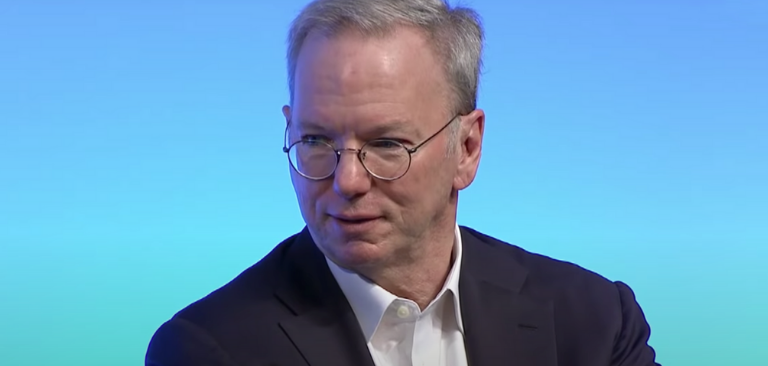Former Google CEO Eric Schmidt was never really gone – as he continues to be one of the biggest shareholders even after stepping down from the board of Google (Alphabet) last year.
But now he’s back in the public eye with comments about social media and the necessity of regulation of content on those – but apparently not also of Google’s status as an industry force so dominant that it has effectively become a monopoly.
There, Schmidt told the Wall Street Journal’s virtual conference the government need not intervene or regulate. He in this was either pretended not to, or truly did not understand how competition protection rules work. Google isn’t a monopoly, Schmidt asserted – because its market share isn’t 100 percent.
During the conference, Bloomberg reported Schmidt also dismissively, as is his manner, said social networks had become hotbeds of “idiots and crazy people” – but maybe this is the only type of audience he could persuade that Google needs 100 percent market share to be a true monopoly in the search, and resulting super-lucrative ad markets.
His comments came just as the US Department of Justice submitted its antitrust lawsuit, narrowly focusing on one of Google’s many contentious and controversial behaviors – anti-competitive practices that prevent other companies from participating in any meaningful way in the search and ad markets.
The complex system and relationships that Google has with third parties, utilizing massive troves of personal user data collected it has access to, makes Schmidt’s argument about the need of literal, 100 percent market dominance to prove monopolistic status lazy and disingenuous. There are numerous historical examples of large corporations in the US, like Standard Oil, getting broken up to allow the market to “breathe” even if there had been no “100 percent control.”
On the issue of social networks serving to amplify “idiots and crazy people” – that is apparently neither the demographic nor the outcome Schmidt was hoping to cultivate. The former CEO who has a massive ownership share in Google had no problem warning it, and the rest of the tech industry, that they need to step up efforts to police and curate social networks even more – “or there will be regulation.”













